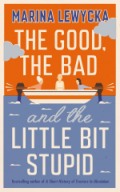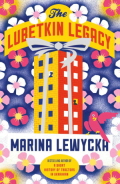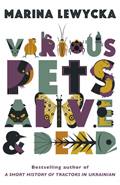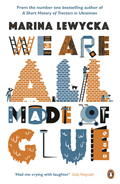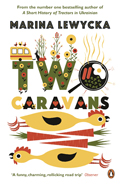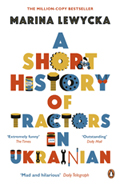A Short History of a Ukrainian Tractor lady
![]()
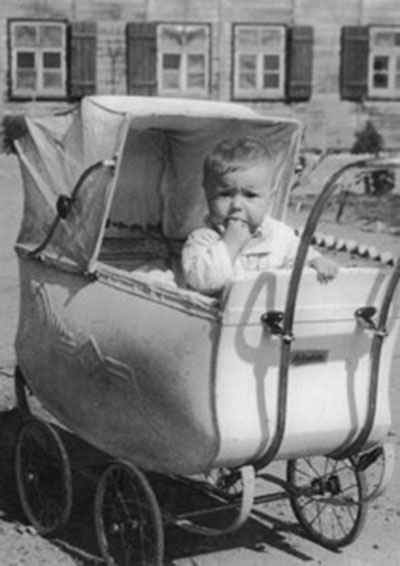
Marina Lewycka was born in 1946 in a refugee camp in Kiel, Germany. She can't remember anything about it, but her Mum always said she was a lovely baby, and she should know. She enjoyed eating semolina (still does) so they nicknamed her Marina Semolina.
When she was about a year old, the family moved to England. After the reception centre, they found a home with elderly Mrs Dobbs (famous for being Malcolm Muggeridge's mother-in-law) in Sussex and later with Miss Winifred Morton at Burwash Common. Her Mum did the housework and looked after the old ladies, while Marina fed the ducks, and acquired an early interest in the welfare of poultry.
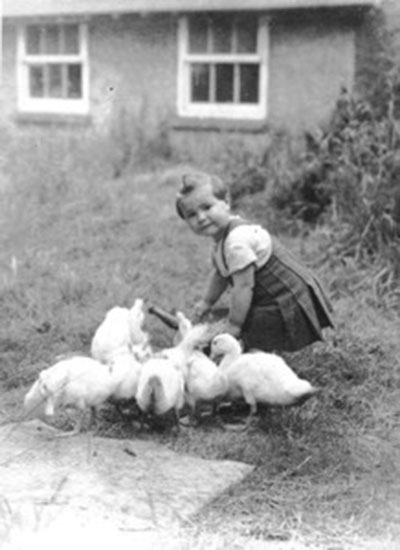
It was Mrs Dobbs and Miss Morton who first taught her to speak English with a suitably posh accent which 35 years in Yorkshire could never quite erase.
In about 1949 the family moved into their first home of their own, in Norton, a small mining village close to Doncaster. It was a two-up two-down terraced cottage with a tin bath in front of the fire and a lav in the back alley with little squares of torn-up newspaper stuck on a nail.
Her Dad worked for International Harvester tractors in Doncaster and went to work every morning on his motorbike (a Norton 500). She went to St Catherine's School in Pontefract, a small mining town famous for the Prince of Wales colliery and Pomfret cakes, which are round sweets like coins made of liquorice. One day she stole the class dinner money and sneaked into Pontefract and spent it on Pomfret cakes. It was easy for the teachers to spot the culprit because she came back with black goo all around her mouth. She wasn't expelled - the teachers were very kind, and they were probably a bit sorry for her, because they let her win the school prize - it was a book called Mary Was Five & The Black Rock by Honor C Appleton - the first book of her very own, which she loved to shreds. Her other loves were Muffin the Mule and the Bill and Ben the Flowerpot men.
This was also the start of her long career as an unpublished writer. Here is her first poem, which was written when she was about four.
Green grass. Green grass.
One little rabbit hopping past.
Two little butterflies flying by.
Three little skylarks up in the sky.
Four little lambs are playing there below.
Five little men are walking to and fro,
Six little girls are merrily at play.
Oh isn't it a pleasant and a sunny summer's day.
OK, it's not yer Milton.
In about 1954 they moved to Doncaster, where she went to Wheatley Hills Primary School, and got bullied by little boys who called her a Gerry because she was born in Germany (neuh neuh, we won the war ...) and a Rusky because no one had heard of Ukraine (neuh neuh, you're a commie ...) and pulled her hair, because she had it in plaits.
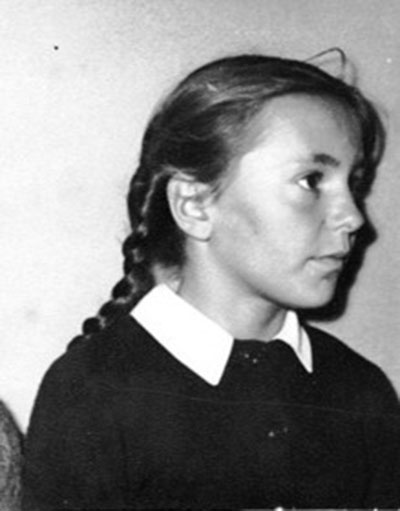
However, she didn't care, because by then she had a man in her life who was fearless and dashing and bold and carried her away every night in his aeroplane.
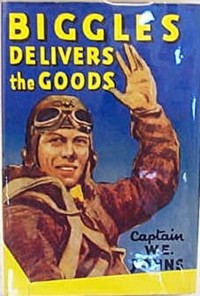
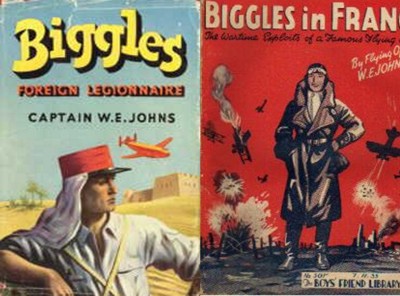
http://www.biggles.info/Details/09/
While she was ploughing her way through all 98 Biggles books, the family moved again, to Gainsborough in Lincolnshire, where she attended Gainsborough High School for Girls, then to Witney in Oxfordshire, where she attended the Henry Box Gramar School. Her taste in literature became (marginally) more sophisticated. She discovered poetry, especially poetry that rhymes; Walter de la Mare and Alfred Lord Tennyson were her new passions, and when she's had a drink or two she can still recite a big chunk of the Lady of Shallot, which she thought was the height of sophistication.
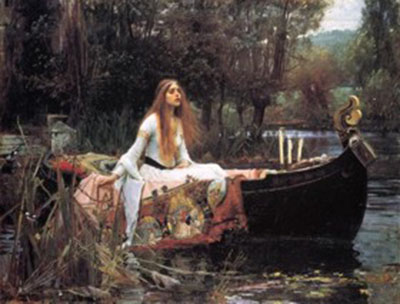
That was how she pictured herself, with a faraway look and moody eyes, drifting towards her doom.
The reality was somewhat different.
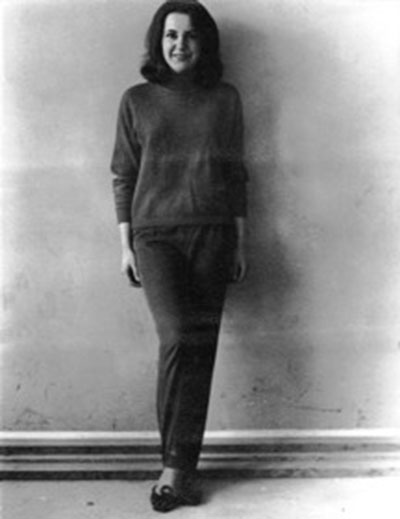
Although she'd been a cute baby and bright school-girl, Marina was an appalling teenager. When she was sixteen she cut off her plaits, painted Cleopatra-lines around her eyes, and joined the Campaign for Nuclear Disarmament. Fortunately no photos exist of her at this time.
She took English, French and Russian at A level, and went up to Keele University in 1964, where she read English and Philosophy. At that time, Keele had a brilliant 'foundation year' during which everyone studied a bit of everything - arts, sciences, history, astronomy, politics, a language, maths, psychology. Although Marina had always been quite keen on science (she got it from her Dad) she'd had to choose just three subjects at A level, so this was a chance to round out her education.
English was still her favourite, and she particularly loved Chaucer, the metaphysical poets, and of course Shakespeare. By a quirk of selection she ended up reading a lot of poetry and drama, but no novels - in fact nothing written later than 1700, apart from a module on Irish literature, which introduced her to two of her all time favourites - W.B. Yeats and James Joyce.

How cool is that?
In 1968, when she graduated, all the universities were in turmoil and students were in the vanguard of the revolution, the beach was there underneath the pavement, and realists demanded the impossible. And, yes, she wore the mini-skirts.

http://www.justseeds.org/blog/general/
Naturally she wasn't yet ready to leave behind the student life, so she took a BPhil in English at the University of York, and then enrolled for a PhD at Kings College London, on the writings of the Levellers and the Diggers. But she never finished it; the 1968 movement had seized her imagination. She went off to live in a squat, and spent all her time in meetings which, incredible though this may now seem, were more interesting than the hours spent in the library.
Besides, she'd already started on her long career as an unpublished writer, which finally came to an end in 2005 when A Short History of Tractors in Ukrainian was published.
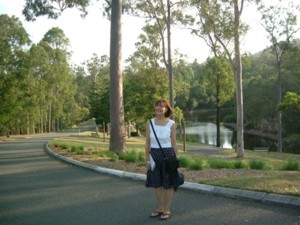
I've been a 'successful' writer for almost five years now, but I never forget that I was an unsuccessful writer for more than fifty. It helps to keep things in perspective.
NB This pic is not my country estate, it's Bushy Park in Brisbane, September 2009

